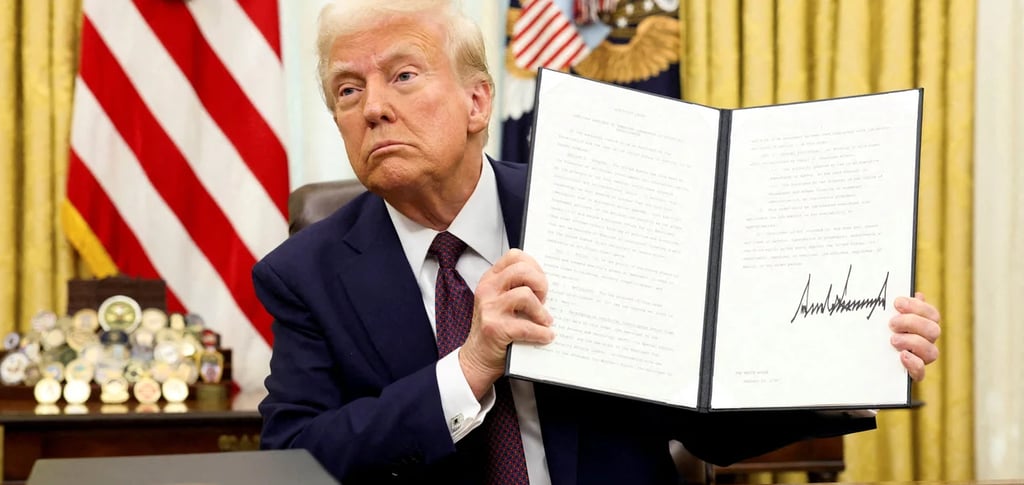Trump's Deregulatory Climate Agenda Sparks Business Uncertainty
President Donald Trump’s aggressive rollback of climate regulations has introduced significant uncertainty for businesses. While aimed at reducing compliance costs, the rapid policy shifts create legal and financial risks, leaving corporations wary of long-term investments. Experts warn that the deregulation push could stall the green transition and disrupt market stability.
CLIMATE
Ke Press Global
2/8/20252 min read


In his early weeks in office, President Donald Trump has aggressively dismantled climate and environmental policies, signaling a major shift in regulatory enforcement. His administration is rolling back a broad range of environmental protections and targeting key agencies responsible for enforcing them, a move he claims will unburden businesses from excessive compliance costs and foster economic growth.
"Overregulation stops American entrepreneurship, crushes small business, reduces consumer choice, discourages innovation, and infringes on the liberties of American citizens," reads a White House fact sheet outlining Trump’s deregulatory agenda.
While some businesses—particularly smaller firms—may welcome these changes, the rapid and sweeping nature of the deregulation effort comes at a cost. Beyond undermining emission reduction efforts, the policy shifts create deep uncertainty for companies reliant on clear and stable climate regulations to guide long-term investments.
Corporate Uncertainty and Climate Risks
Despite the financial risks posed by policy instability, most corporations have remained publicly silent, wary of retaliation from the administration. However, behind closed doors and in mandatory regulatory filings, businesses acknowledge growing concerns.
Ford Motor Company highlights the inconsistency of climate policies between administrations as a major regulatory risk.
Bank of America warns of increasing legal and compliance challenges due to conflicting stakeholder views on climate action.
Dow Chemical notes climate change as a business risk, citing shifting public sentiment and government incentives.
ExxonMobil CEO Darren Woods has publicly called for a more stable regulatory environment, stating, “The polarization and political back-and-forth that we see in [the U.S.] is not good for the country, not good for society. It’s frankly not good for business. What we need is more thoughtful, consistent regulation.”
The Legal and Economic Consequences of Deregulation
Even aspects of Trump’s agenda that some businesses support—such as expedited permitting for energy infrastructure projects—come with unintended risks.
Workforce Cuts: Rapid deregulation efforts may lead to agency staff reductions, making it harder to process permits efficiently.
Legal Battles: Many executive orders and policy reversals will face lengthy court challenges, delaying decisions and creating uncertainty for investors.
Market Disruptions: Inconsistent climate policies slow down the transition to green energy, affecting industries that are already shifting toward sustainable alternatives.
In Trump’s first week in office, analysts noted that while his anti-climate push would face resistance from market forces, even bureaucratic slowdowns could delay critical progress in reducing emissions. As businesses wait for regulatory clarity, the risk of economic and environmental consequences continues to grow.
© 2026. Ke Press Global. A Ke Harbor Company. All rights reserved.
FOLLOW KE PRESS GLOBAL ON :
Contact us


